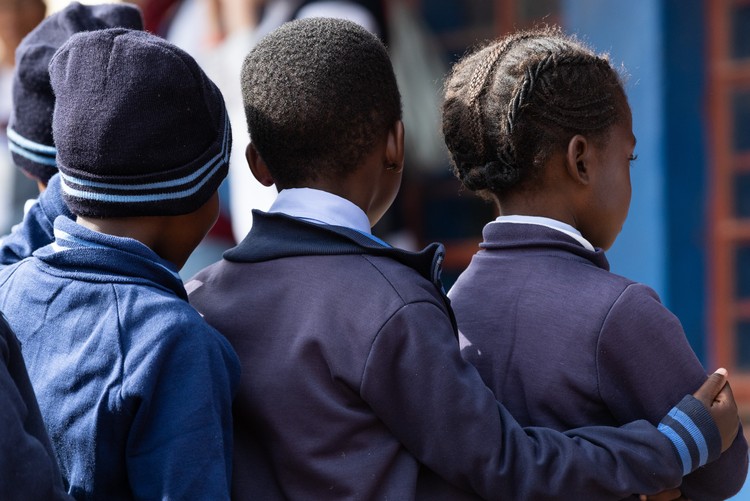Government criticised for blaming Covid for the country’s literacy crisis
Department of basic education needs to take responsibility for “devastating” literacy rates, say opposition and civil society
The Department of Basic Education briefed Parliament on Tuesday after the Progress in International Reading and Literacy Study showed that eight out of ten grade 4 learners could not read for meaning.
- Briefing Parliament on Tuesday, the Department of Basic Education blamed poor literacy rates on the Covid pandemic.
- Last week the Progress on International Reading Literacy Study found that 81% of South African grade 4 children cannot read for meaning.
- Equal Education said government had failed to respond to the many challenges facing the education sector.
In Parliament on Tuesday, the Department of Basic Education (DBE) blamed poor literacy rates and the failure of its National Reading Plan (implemented in 2019) on the Covid pandemic.
Last week, the Progress on International Reading Literacy Study (PIRLS) results revealed that 81% of South African grade 4 children cannot read for meaning. In 2016 it was 78%.
The department is currently reviewing a national reading sector plan in an attempt to tackle the literacy crisis in learners’ foundation phase.
The department’s chief director for foundations for learning Kulula Manona told MPs that due to the Covid pandemic about 54% of contact time was lost in 2020, and 22% in 2021.
But DA MP Baxolile Nodada (the party’s shadow minister for education) said the department had not taken responsibility for the “devastating” literacy rate.
Nodada said that “wholly blaming Covid-19 on the outcomes of the PIRLS results is quite meek”, and that it was disappointing that the DBE was not taking some accountability for the literacy results.
Nodada also questioned the current National Reading Plan, which he said was not budgeted and lacked coordination in provincial departments. He also questioned whether there was an intention for the reading plan to be budgeted for going forward.
GroundUp and Viewfinder recently revealed how the National Reading Plan and “massive reading campaign” never got off the ground, despite the DBE claiming it had been implemented in all nine provinces.
Manona said a revised plan will address the gaps and challenges. The new reading sector strategy will focus on four strands, as opposed to the previous plan that focused on ten. The focus areas include: culturally relevant learning and teaching resources, skilled and versatile teachers, involved communities and parents, and an explicit policy framework.
Manona said the DBE is aware there are “systemic challenges” facing schools and teachers, such as class sizes in the foundation phase. Shortage of teachers is another issue.
Last week, GroundUp and Viewfinder reported on teachers in no-fee schools in Makhanda facing challenges with overcrowded classrooms and teacher shortages making it difficult for learners to receive one-on-one support.
Minister Angie Motshekga also spoke in Parliament on Tuesday. She said the literacy crisis is a “multi-layered” issue that included overcrowded classrooms, poverty, and lack of supportive parents. She said it would take joint responsibility to fix the literacy crisis and “it takes a village to raise a child”. Motshekga also said “it’s not money” but rather “many other things”.
Motshekga said the PIRLS was not a competition and it gave the DBE an opportunity to learn from developed countries.
Equal Education (EE) released a statement on Tuesday criticising the department’s failure to “address the deep cracks in the [education] system”.
EE said the DBE cannot blame the literacy crisis on the pandemic alone.
“The ongoing reading crisis … shows how poorly the government and education departments have recognised the multiple challenges in the sector and have failed to muster the necessary political will to address them,” said EE.
Support independent journalism
Donate using Payfast

Next: Thabo Bester escape: no reason for bail to be granted, says prosecutor
Previous: Khayelitsha families want asbestos roofing removed
© 2023 GroundUp. This article is licensed under a Creative Commons Attribution-NoDerivatives 4.0 International License.
You may republish this article, so long as you credit the authors and GroundUp, and do not change the text. Please include a link back to the original article.
We put an invisible pixel in the article so that we can count traffic to republishers. All analytics tools are solely on our servers. We do not give our logs to any third party. Logs are deleted after two weeks. We do not use any IP address identifying information except to count regional traffic. We are solely interested in counting hits, not tracking users. If you republish, please do not delete the invisible pixel.

